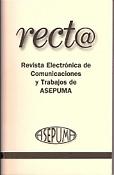Estacionalidad en el proceso de Depuración de Aguas Residuales: Impacto sobre la Eficiencia y los Costes de Operación
Keywords:
tratamiento aguas residuales, estacionalidad, aireación prolongada, fangos activadosAbstract
Many tourist areas are often characterized by seasonal water demand. The influence of the seasonality on the water management is more intensive in the context of water scarcity. So, the use of non-conventional water resources in these areas becomes a key aspect. In this sense, efficient performance, both in technical and cost terms favors water reuse possibilities and, therefore, increases the supply of the so called non-conventional resources. In tourist areas, seasonality is a determining factor in the efficiency of wastewater treatment plants (WWTPs) as these are operating at full capacity only during summer season while the rest of the year they have under-utilization problems. Using the Free Disposal Hull (FDH) methodology, this paper analyzes the efficiency differences between those WWTPs located in tourist areas with strong seasonality, in relation to those located in non-tourist areas. Moreover, on one hand, it has been determined the efficiency of WWTPs with extended aeration technology and, on the other hand, the efficiency of plants with activated sludge processties.
Downloads
Publication Facts
Reviewer profiles N/A
Author statements
Indexed in
-
—
- Academic society
- N/A
- Publisher
- UMA Editorial. Universidad de Málaga
Downloads
Published
How to Cite
Issue
Section
License

This work is licensed under a Creative Commons Attribution-NonCommercial 4.0 International License.





